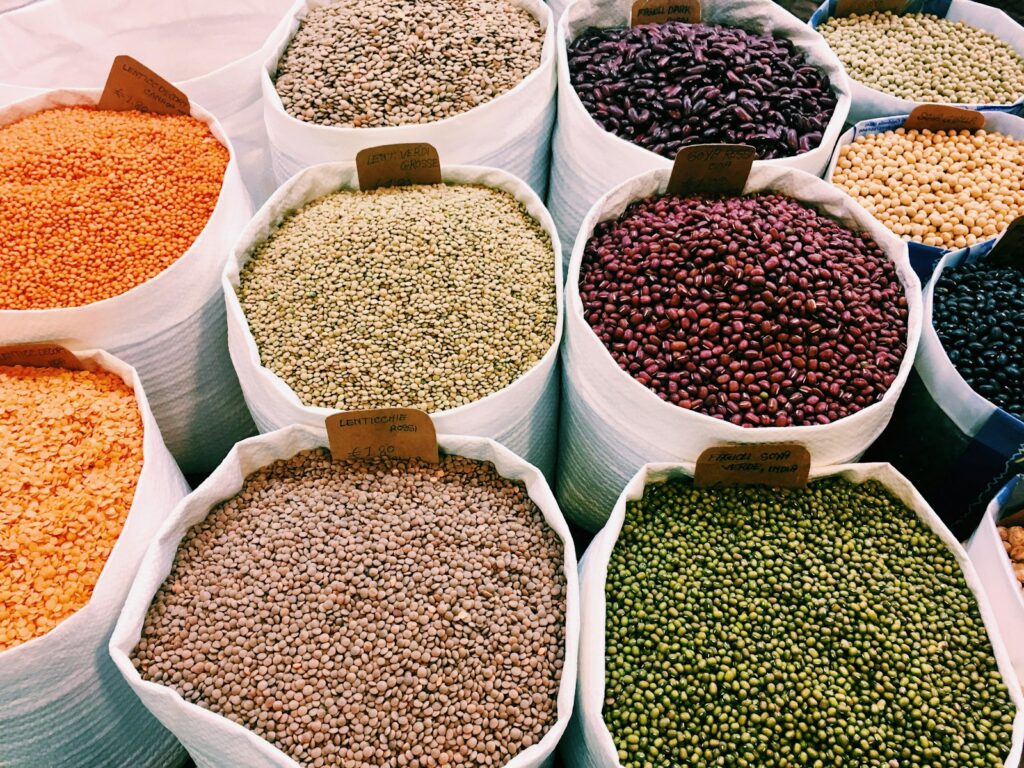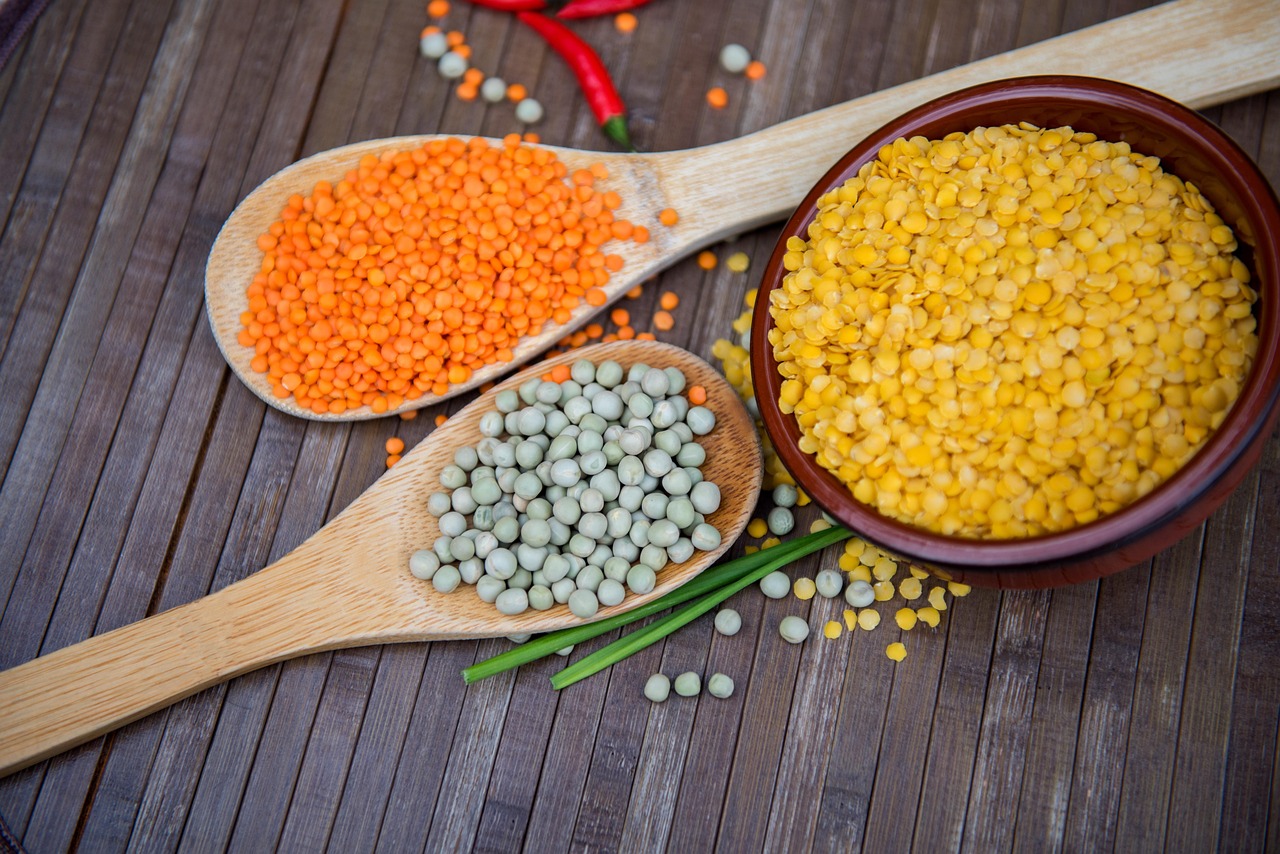Lentils are a humble yet powerhouse legume that have been a staple in diets around the world for thousands of years. These small, lens-shaped seeds are not only affordable and versatile but also packed with essential nutrients that offer a wide range of health benefits. Whether you’re looking to improve your heart health, boost your energy, or simply enjoy a delicious and nutritious meal, lentils are an excellent choice.
However, like any food, it’s important to understand their benefits, properties, and potential contraindications.
Let’s explore the world of lentils!
What are Lentils?
Lentils are edible seeds from the legume family and come in a variety of colors, including green, brown, red, yellow, and black. They are a staple in many cuisines, from Indian dal to Mediterranean soups and stews. Lentils are prized for their high protein content, making them a popular choice for vegetarians and vegans.
Nutritional Profile of Lentils
Lentils are a nutrient-dense food, offering a wealth of vitamins, minerals, and other beneficial compounds. A single cup (cooked) of lentils provides:
- Protein: About 18 grams, making them an excellent plant-based protein source.
- Fiber: Around 15 grams, which supports digestion and gut health.
- Iron: Essential for oxygen transport and energy production.
- Folate: Important for cell division and preventing birth defects during pregnancy.
- Magnesium: Supports muscle and nerve function.
- Potassium: Helps regulate blood pressure.
- Antioxidants: Protect cells from damage and reduce inflammation.
7 Benefits of Lentils
- Supports Heart Health
Lentils are rich in fiber, potassium, and magnesium, all of which contribute to cardiovascular health. They help lower cholesterol levels, regulate blood pressure, and reduce the risk of heart disease. - Aids Digestion
The high fiber content in lentils promotes healthy digestion, prevents constipation, and supports a balanced gut microbiome. This can also help reduce the risk of digestive disorders like irritable bowel syndrome (IBS). - Boosts Energy Levels
Lentils are an excellent source of iron, which is crucial for producing hemoglobin and transporting oxygen throughout the body. This helps combat fatigue and boosts energy levels, especially for those with iron-deficiency anemia. - Supports Weight Management
Low in calories but high in protein and fiber, lentils keep you feeling full and satisfied for longer. This makes them a great addition to weight-loss or weight-maintenance diets. - Stabilizes Blood Sugar
The complex carbohydrates and fiber in lentils help regulate blood sugar levels, making them a good choice for people with diabetes or those looking to prevent blood sugar spikes. - Promotes Muscle Growth and Repair
Lentils are a rich source of plant-based protein, which is essential for muscle growth, repair, and overall body function. They are a great alternative to animal protein for vegetarians and vegans. - Supports Brain Health
Lentils contain folate, magnesium, and B vitamins, which are important for cognitive function and mental health. Folate, in particular, helps reduce the risk of neurodegenerative diseases like Alzheimer’s.
How to Enjoy Lentils
Lentils are incredibly versatile and can be used in a variety of dishes. Here are some delicious ways to incorporate them into your diet:
- Soups and Stews
Add lentils to soups and stews for a hearty, protein-packed meal. They pair well with vegetables, spices, and broths. - Salads
Toss cooked lentils into salads for extra texture and nutrition. They work especially well with leafy greens, tomatoes, cucumbers, and a light vinaigrette. - Curries and Dals
Lentils are a key ingredient in Indian dals and curries. Cook them with spices, tomatoes, and coconut milk for a flavorful dish. - Burgers and Patties
Use lentils as a base for vegetarian burgers or patties. Combine them with breadcrumbs, spices, and vegetables for a tasty and nutritious alternative to meat. - Side Dishes
Serve lentils as a side dish with roasted vegetables, grains, or grilled meats. Season with herbs, garlic, and olive oil for added flavor. - Snacks
Roast cooked lentils with spices for a crunchy, protein-rich snack.
Potential Contraindications
While lentils are generally safe and healthy for most people, there are a few considerations to keep in mind:
- Digestive Issues
The high fiber content in lentils can cause bloating, gas, or discomfort for some individuals, especially if consumed in large quantities. Start with smaller portions and gradually increase your intake to allow your digestive system to adjust. - Antinutrients
Lentils contain antinutrients like phytic acid and lectins, which can interfere with the absorption of certain minerals like iron and zinc. Soaking, sprouting, or cooking lentils can help reduce these compounds. - Kidney Stones
Lentils are high in oxalates, which can contribute to kidney stone formation in susceptible individuals. If you have a history of kidney stones, consult your doctor before consuming large amounts of lentils. - Allergies
Although rare, some people may be allergic to lentils. Symptoms can include itching, swelling, or difficulty breathing. If you experience any adverse reactions, discontinue use and seek medical advice.

Lentils are a nutrient-packed legume that offers a wide range of health benefits, from supporting heart health and digestion to boosting energy and promoting muscle growth. Their versatility and affordability make them a staple in kitchens around the world. However, it’s important to be mindful of potential digestive issues and contraindications, especially if you have specific health conditions. By incorporating lentils into your diet in moderation, you can enjoy their many benefits while staying healthy and satisfied.
Have you tried lentils?
Share your favorite lentil recipes and tips in the comments below! 🌱

